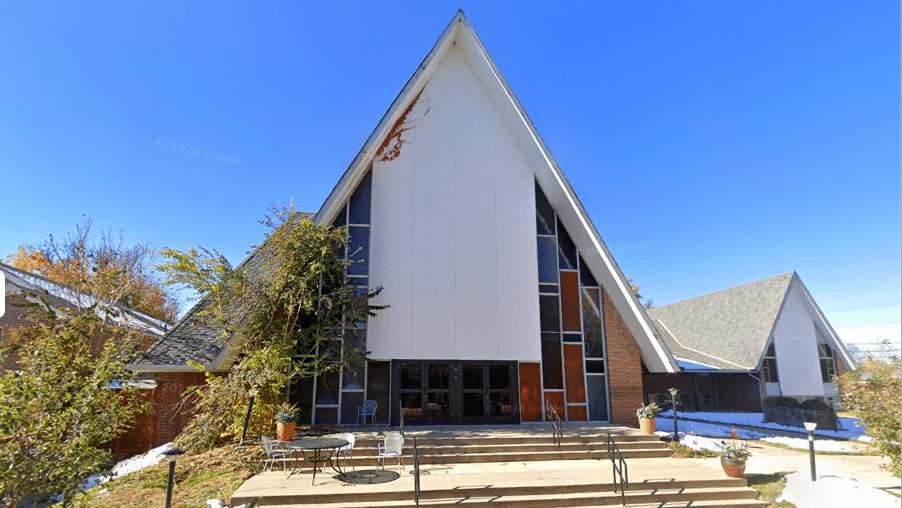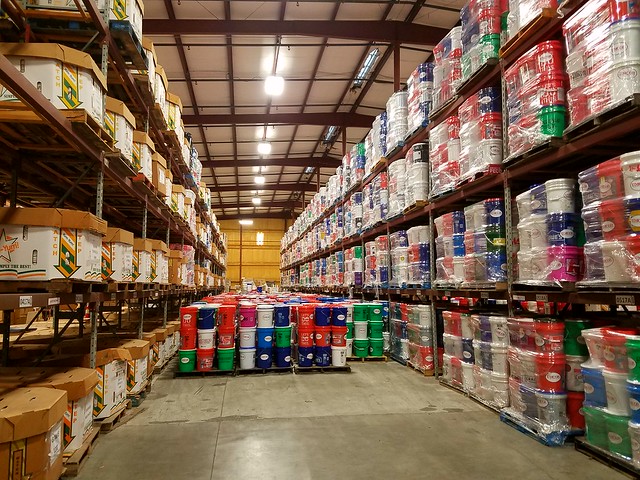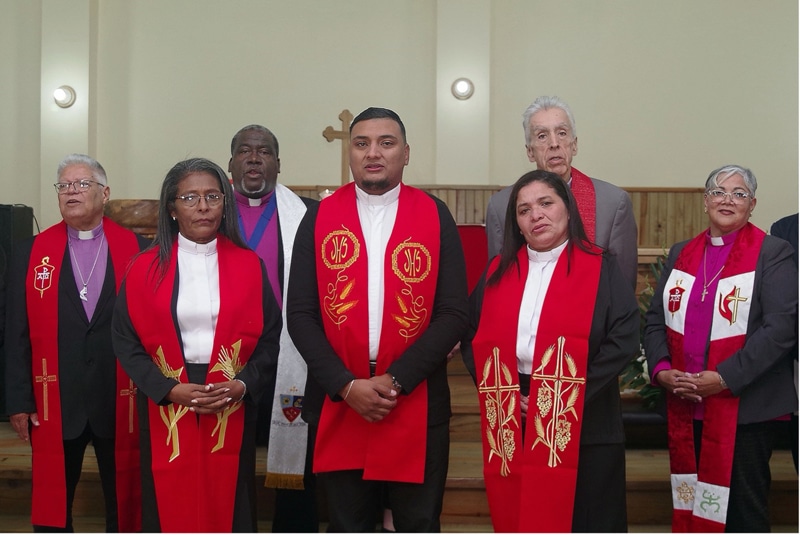Global Health grants reach people with physical disabilities in remote places
By Christie R. House
August 28, 2019 | ATLANTA
Mobility is key to a person’s independence. The ability to go to market, get to the doctor, take the kids to school or travel to work can be daunting for people with physical challenges. While technical advances have helped people in Western countries gain independence, people in countless remote and rural areas across the world would find a wheelchair of little use on the rocky, unpaved terrain they might travel.

PHOTO: EMILY PADILLA, PET ZAMBIA
Addressing physical disabilities may mean providing new ways to travel or new prosthetic limbs for those who need them. Global Ministries meets the challenge of immobility in a variety of ways through Global Health initiatives. Support for United Methodist health clinics and hospitals in rural areas may provide early diagnoses and treatments that ultimately prevent physical disability. But often these clinics operate in areas where the population has experienced trauma from violent conflict. Landmines, irreversible injuries, poor nutrition and poverty contribute to the permanent loss of mobility.
A prosthetic solution in Sierra Leone
Global Health has partnered with the United Methodist Health Board in Sierra Leone and the United Methodist Prosthesis Center in Bo District to support a prosthesis initiative for amputees. In 2002, an overwhelming need for prosthetic devices in Sierra Leone caused the United Methodist Committee on Relief to create a project to manufacture and fit a simple, lower-limb prosthesis developed in India, called the Jaipur foot. The materials and technique produced a strong and reliable prothesis. Lappia Amara, director of the center since its founding, helps amputees regain mobility and reintegrate into their communities. The center supports those who have become amputees for a variety of reasons, including accidents, war and sickness.
Amara says the center served 79 patients in the first quarter of 2019: “Working with both lower and upper limb patients, our most recent group included 51 men and 28 women. Of those, 53 received below the knee protheses and 26 above the knee. We repaired 50 old limbs (requested by returning patients) and 22 wheelchairs and treated 30 stroke patients. We conducted several visits to amputee camps. Counseling and preparation of artificial limbs are our major activities. Provision of wheelchairs is a new opportunity made possible by a partnership with the government and other agencies.”
“While losing a limb is a challenging experience, it doesn’t have to define your life in a negative manner,” Amara continued. “All of these people have taken circumstances outside their control and used them to be a positive influence on those around them.”
Aminata Kargbo, from Shenge, lost her leg because of an accident traveling to Bo. Kargbo’s first thought was: “How can I live without my foot? I am a pupil and an athlete.”
While she still bears emotional and physical trauma symptoms, the center in Bo has given her hope. “I would like to continue my schooling and my athletics, but the pain was too much using a crutch. I try and put on a brave face among my friends, but soon, thanks to this project, I will have a prosthetic to help me. I have really been encouraged by this support and I am so grateful to donors because I can use this limb to go to school and do other things for myself.”
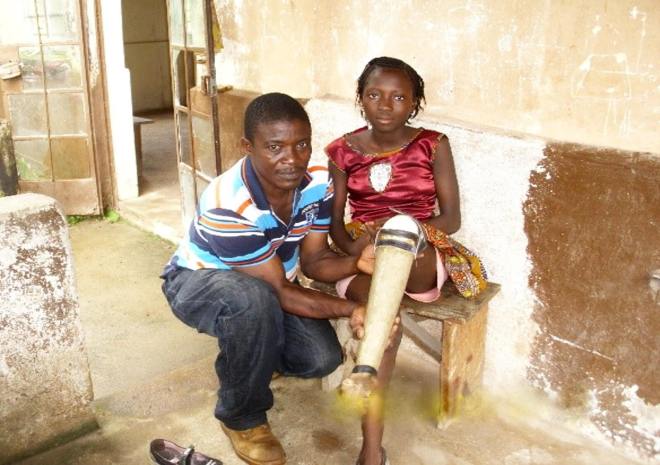
PHOTO: COURTESY LAPPIA AMARA
Personal transportation in Zambia
A second ministry receiving a Global Health grant this year is PET Zambia (www.petzambia.com), part of the New Life Center ministries of the UMC Zambia in Kitwe. Zambia is one of the more stable countries in Africa, but because of that, it has received refugees from neighboring countries. The PET (Personal Energy Transportation) ministry started in the Democratic Republic of the Congo (formerly Zaire) in 1994 and then moved to Zambia during the political upheavals in the DRC in the late 1990s.
Josephine Mbilishi, a United Methodist deaconess, is the director of the New Life Center, which provides training for spiritual development, community leadership and community health, including the PET ministry. Delbert and Sandy Groves serve as missionaries with the center. They began missionary service in 1991 in the DRC, and they have worked in Zambia since 2000. One of Delbert Groves’ responsibilities is the PET workshop.
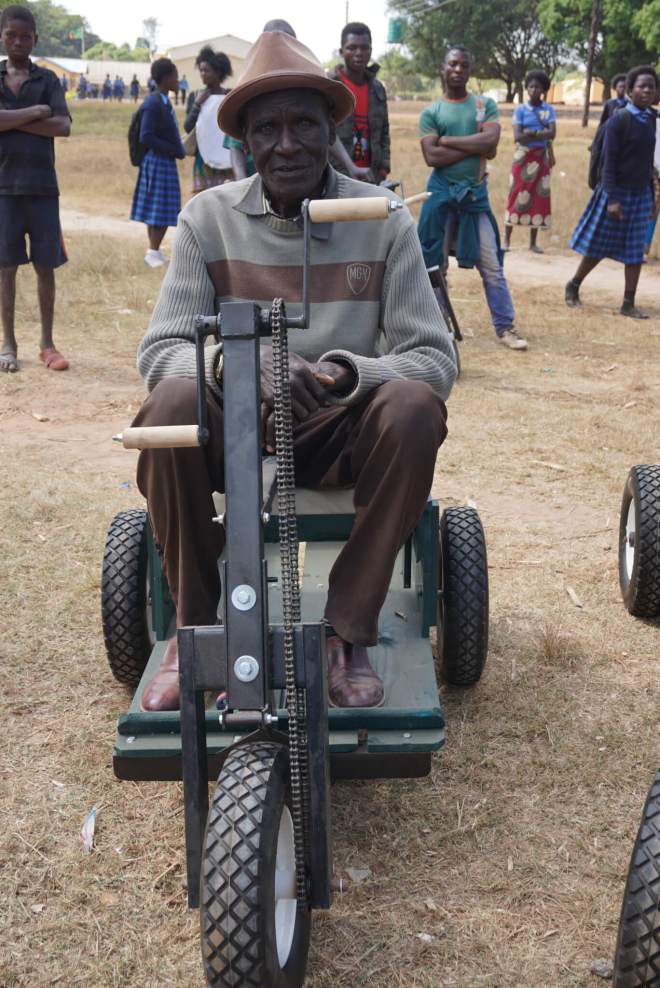
PHOTO: EMILY PADILLA, PET ZAMBIA
A PET is a three-wheeled chair with wide, durable wheels, a cart and hand pedals to propel the device. The PET project was started after the Rev. Larry Hills, a UMC missionary in the Congo, accidentally stepped on someone crawling through the fields. Hills pulled back the weeds to find a young woman with a baby on her back going about her daily chores. Hills worked with Mel West in Iowa and other friends in the U.S. to develop a PET prototype. The U.S. ministry, which is now called Mobility Worldwide, has expanded to 22 workshops in the U.S., making carts and then shipping them internationally to areas where they are needed.
PET Zambia is currently the only African workshop making the carts. Careful monitoring of materials, ordering in bulk and delivering within Zambia brings the cost down to about a third of the U.S. PETS. All PETs are provided free of charge to the people who need them.
Groves says building a PET is the easy part. “The hard part is identifying people in need of a PET,” he explains. “Over 25 years, we have developed a wonderful resource of partners in Central Africa, which includes other missionaries and churches, government disability departments and individuals that help us find people who need a PET.”
PET Zambia builds and distributes at least 500 PETs each year. In Zambia alone, they estimate 150,000 people still need them.
“Because the need is so great, we have bought land in south Zambia in a town called Livingstone, near the border to four other African countries,” Groves continues. “We’re hoping to break ground early in 2020 to build a new PET Zambia facility. It will also be used to help build the UMC in the southern provinces of Zambia. That’s our main reason for being missionaries in Zambia, evangelism and church development.”
Reaching isolated people
Helping people to overcome the barriers that keep them from joining in daily activities of life can go a long way to restoring their independence and self-esteem. While finding people tucked away in their villages and even in larger cities may be difficult, Methodists connect in amazing ways to reach them.
Methodists across the connection can join in this life-restoring ministry through the Abundant Health Initiative, Advance #3021770.
Christie R. House is the senior writer/editor for Global Ministries.

